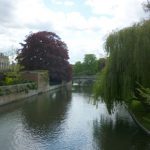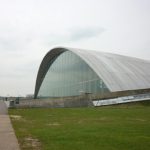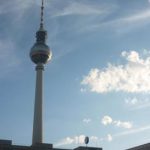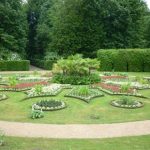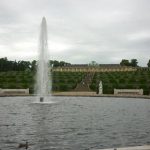Student Reports: Ethan Cansler, Cambridge and Berlin, 2012
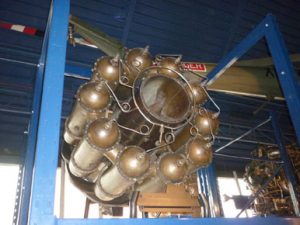
Sunday, May 13, 2012
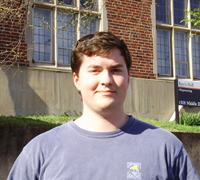
At this time tomorrow, I should be airborne over the Northeast on the redeye to Heathrow. In June, I’ll begin the IES Abroad program in Berlin; until then, I’ll be in the UK and France conducting research for my honors thesis. At this point, I’m both excited to be spending two and a half months abroad, and nervous that I forgot something important in my rush to pack after finals ended.
For now, I’m particularly looking forward to being back in Cambridge for a few days while I look through archives and the Duxford branch of the Imperial War Museum. I spent a couple of weeks in Cambridge during Miniterm of 2010 as part of Dr. Heffernan’s annual trip, and so am reasonably familiar with the area and how to get around. London, too, I am used to, but Paris and Berlin will be much greater adventures in adaptation. (Although at least in Europe I will be able to read and puzzle through the language, in contrast to China last year!) You can safely expect plenty of pictures along the way, probably too many.
Friday, May 18, 2012
I’ve at last settled into Cambridge (and will naturally be heading to London tomorrow for the next phase of my research). Wednesday was spent in the Churchill Archives at Churchill College, looking through letters to and from Frank Whittle and other documents related to his company, Power Jets Ltd. I should probably explain that my thesis is about the comparative development of the jet engine in England and Germany in the years immediately prior to and during the Second World War; in England, this was primarily affected by Frank Whittle, an RAF officer who, for a time, studied here in Cambridge.
Today, I went with my travel companion (and fiancée) Sarah Russell to the Duxford branch of the Imperial War Museum, which lies about half an hour out of Cambridge by bus. Currently, Duxford is the largest aviation museum in the UK; it’s still a functional airfield, but the majority of the structures have been converted to display and conservation spaces. While it had nothing to do with my direct research, I was fascinated to see craft such as a B-52, SR-71, and Concorde testbed up close, as well as older planes closer to the era of my research such as Spitfires and Mustangs. The museum’s displays of material relating to Whittle’s work were fewer than I had been led to believe, but I certainly don’t regret the experience. In fact, I might end up coming back on the 27th, if I have time, to see the Jubilee Air Show.
Tomorrow, I plan to look through the Whipple Science Museum and generally enjoy some last hours in Cambridge, and then travel on to London for the next phase of the trip. Pictures have been taken, but I haven’t had time to download them to my computer yet. They will come!
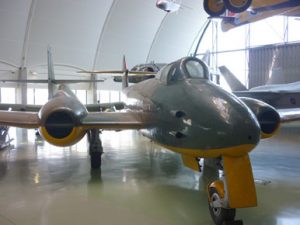
Wednesday, May 23, 2012
Unfortunately, London is experiencing unusually warm weather (we’re talking around 80 degrees F) which, compared to good old Knoxville, I know is less than nothing. However, Knoxvillians have something that I don’t have over here: air conditioning! Seeing as the British don’t normally get weather this warm, very few places have A/C, so I’m hoping this weather subsides soon (bearing in mind that I’m happiest when the weather doesn’t top 50). The one upside is that the city does look a lot cheerier when the sun is out.
So far, the best museum I’ve been to has been the RAF Museum in North London, which was probably the most comprehensive collection of aviation and historical exhibits from WWII that I have ever seen. Probably the most interesting plane, apart from the Gloster Meteor, which I went to see, was a Halifax bomber which had been dragged up, mostly intact, after decades at the bottom of a Norwegian lake. The damage was surprisingly minimal; apparently, when a team went to the trouble to dissect and recondition one of the engines, they found that the oil was still in flying condition, as was the starter motor. Now I’m actually happy that transit to the Midlands Air Museum in Coventry was prohibitively expensive, because I had to pick between it and the RAF Museum.
Today, despite my attempts at academic pursuits, I resigned myself to the inevitable and became simply a tourist, going through the Churchill War Rooms. The whole complex was mostly abandoned after the war ended, and parts of it stayed very well preserved until the 80’s, when it was made public and opened to visitors. The wartime desperation evident in the way the whole enterprise had been set up (thrown together) was sobering, offering a glimpse at the mindset of a government which suddenly realized its vulnerability to devastation from above. On the way back to my apartment, I got to experience a London rush hour due to pretty poor planning on my part. To my great surprise, despite the Tube cars being absolutely packed, the commuters were very polite relative to what one would expect back home—and don’t even get me started on China.
Tomorrow, I’m kind of winging the next few days depending on what exhibits look worth visiting. England has been drier than I thought in terms of material relating to Whittle’s jet engine, but I guess I’ll simply have to make do with being in one of my favorite cities.
Thursday, June 21, 2012
I know it’s been a while since my last update; taking a side trip to Edinburgh, then moving on to Paris, and finally settling into Berlin got pretty disorienting, but I’m happy to say that I’m now well established in Germany. Classes are great so far; my final registration ended up being for the introductory German and political science courses, as well as a sustainability-focused architecture course. The professors are all excellent, and the courses tend to emphasize Berlin-based field trips where possible.
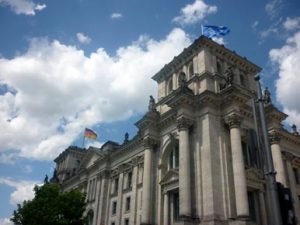
The program consists of around thirty-five people, of whom I believe I am the sole engineer, as well as one of only a handful of Southerners—a change of surroundings on many levels! I have to admit, a cohort of Americans to meet up with is a great asset, particularly when several of them speak decent German already.
Last Saturday, the entire program went to the nearby city of Potsdam for a day trip. We were originally scheduled to have a walking tour of some of the historic parts of the city, but an uncharacteristic and lingering downpour caused us to opt instead for a museum about German cinema—which thankfully had all its information in English as well as German. Later in the day, we toured a portion of the palace and the gardens of Sans Soucci, a former vacation residence of Prussian nobility. The name is French, for ‘without a care,’ and the ideal was reflected particularly well in the opulent gardens (photos attached).
Observations about the city/language/Germany in general: As I had hoped, the language barrier is not terrible. Though you can’t count on it, very many people here do speak at least enough English to make communication possible. At the same time, once you’ve picked up some rudiments in German such as how to count and directional words, things like ordering in restaurants (many use a system where each item corresponds to a number) or asking for transit directions are pretty simple. It’s frankly amazing what can be communicated with plain gestures and body language.
In general, Berliners are extremely pleasant to deal with, and are happy (sometimes visibly amused) to put up with halting attempts at communication in their language; if they have the time, they more often than not will voluntarily help you learn. It’s very easy to recognize the German linguistic roots of English; while I’m sure a lot of people would happily argue this with me, I find German much easier to learn as a second language than Romance languages such as Spanish or French, because of the shared basic structure. The only big downside here is that, while with Romance languages you can often puzzle though written words using background knowledge of Greek/Latin roots, German vocabulary is pretty hopeless if you don’t simply know it. My German is quite limited, but all the same, I’m proud of what I’ve assimilated in the week and a half of learning.
Berlin has a (mostly) great transit system, comprised of the S-Bahn, U-Bahn, and trams, as well as buses. The U in U-Bahn comes from the German word for ‘underground train system,’ while S-Bahn actually means Schnell-Bahn (Fast Train).
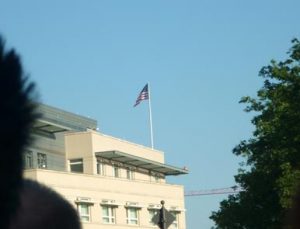
My apartment is in Prenzlauerberg, which was formerly part of East Berlin; most of the buildings predate the war, but it’s still eerie to see the odd communist statue or memorial along the daily commute. The GDR (German ‘Democratic’ Republic, the communist regime) focused on tram development as the main transit element in East Berlin, so they are generally more accessible and useful in my neighborhood than S- or U-Bahns.
Unfortunately, though, the trams are often down or rerouted in some way for maintenance, at least this summer. Ultimately, I’ve found that it’s easier and equally fast to take a circular route that emphasizes the S-Bahn rather than the direct tram to get to IES. My neighborhood is very safe and friendly feeling; there are an abundance of cafes and, in stark contrast to the European trend, plenty of baby strollers around.
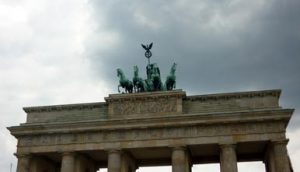
As the Euro Cup is ongoing, there are also no shortage of places to watch the games. Germany looks to have a decent chance of winning, and I’m perfectly happy to cheer and yell along with the locals with each goal. One of the best experiences I’ve had so far was seeing the Germany-Portugal game on a massive screen set up in front of the Brandenburg Gate.
As a result of Berliners’ love of international cuisine, I have yet to have any sort of a traditional German meal. Instead, I have been enjoying mostly Indian, Portuguese, Italian, and Turkish foods. Currywurst and Döner are both excellent bets for a quick, cheap, and filling meal.
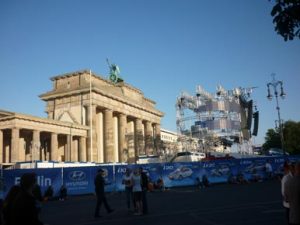
Friday, July 27, 2012
Now that I’m back in America, I feel like I should write one last entry to sum up my final month in Germany. First off, the jet lag is something else for this trip. I had been abroad a couple of other times, but for less than a month in each case. This time I was gone for long enough for my body to shift entirely to the new time zone, and so now I’m having trouble sleeping beyond seven in the morning. I guess I’ve finally become a morning person?
Classes were generally quite small (twelve people or less), and a refreshing change of pace from engineering curriculum. At the same time, I was reminded that I could never be anything but an engineer—other fields have much-too-large gray areas in them for me! Political science is fascinating but would kill me, I think. As for German, I can say with some pride that I managed to learn enough to communicate basics to even the locals who didn’t speak much (or any) English. While it would take me probably years more to become anything like fluent, I like the thought that I could survive with what I picked up in seven weeks. The architecture/sustainability course was probably the most interesting of the three, and gave me a very different perspective on some aspects that we take for granted growing up in America, mainly sprawl and the automobile culture. One of the immediate shocks I had when returning home was seeing just how spread out everything is here, particularly when you get outside of a city center.
What do I miss about Germany immediately? Well, the public transit is the first thing. It’s a decidedly odd feeling to have to drive everywhere now, even to the nearest grocery store. On the flip side, American grocery stores actually seem to have a bit more variety than German stores do, mainly with regard to Mexican and Asian foods (not shocking, but I was missing salsa for two months, bad). More than just public transit, I miss urban density—being able to just walk around the neighborhood to a park, or a restaurant. I miss the ubiquitous biergartens, which amounted to outdoor pubs to grab a grilled bratwurst and a beer, which were a great way to take a weekend afternoon break. And while it’s undeniably great to be able to again immediately understand everything that I read around me, I find myself missing the mental challenge that came along with being surrounded by a foreign language.
The most powerful homecoming shock, however, was when I stepped outside for the first time and felt like I was being steamed in some vast colander. Berlin had the decency to rarely rise above the low 80s, with moderate-to-low humidity. If only I could say the same about the southeastern US.
I guess I set out writing this last entry hoping to come up with some meaningful conclusions about travel and culture, but honestly I think it will take some months before my mind has really made sense of everything that I saw and did. I know the jet lag isn’t helping, but I’m still so close to it, time-wise, that it’s hard to have very much perspective on the trip as a whole.
